#the great train robbery 1903
Text
January 1, 2024: The Great Train Robbery (1903)
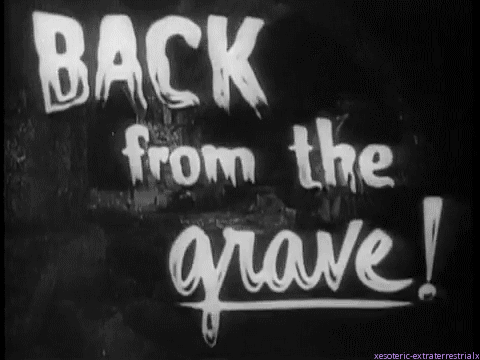
I LIIIIIIIIIIIIIIIVE
So. It's been a while. Life has been busy for the last couple of years, lemme tell you. I love this blog and I love movies, but writing can be...time-consuming for me. Anyway, I figure, why not start this whole thing over again, huh? Well, mostly. Am I gonna get to 365 movies this year? Frankly, that's unlikely, for a number of reasons. BUT! I can at least start small. And, since doing action films in January is a bit of a blast from the past...why not go all the way back this time? Plus, hey - it's a good way for me to get back into the swing of things.
Film history time!
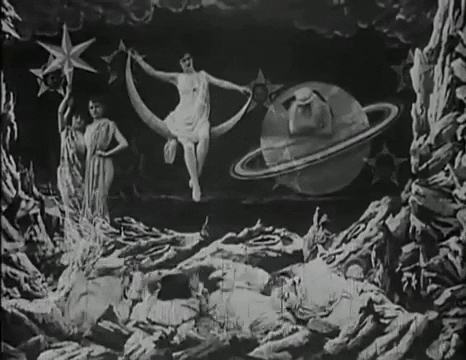
Without going too far into it, the modern film industry began in the 1890s. The first moving pictures were mostly short documentaries, showing live as captured through multiple successive images. L'arrivée d'un train en gare de La Ciotat is often called the first film publicly shown, but that's a misconception. What is true, however, is that the film was made by two luminaries in film history: the Lumiere brothers. Their invention, the cinématographe, was essentially an early film camera, and the brothers used it to document real life.
However, for every good 19th century inventor, there's got to be a rival. And honestly, when you're talking about the 1890s, there's only one real rival to speak of for a given inventor: the Wizard of Menlo Park.
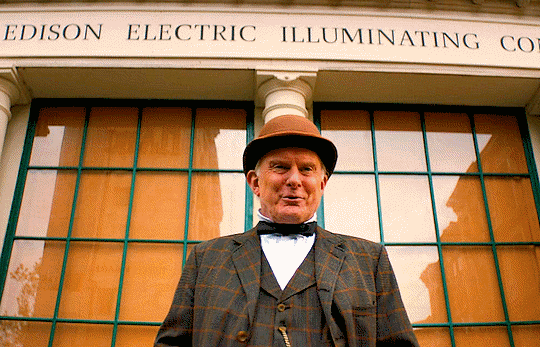
Edison, of course, is legendarily one of the biggest assholes in American history. However, to his credit, the man was genuinely brilliant. Coming up with or perfecting various contraptions and inventions, Edison was a dynamo. In 1889, he had the idea for a device that could capture and display visuals to accompany sounds from the phonograph (which he'd, of course, invented). He had a member of his think tank, William Kennedy Dickson, develop the device, and they created their own early video camera of sorts. With the combination of these two teams, amongst others here and there, the first films began distribution around 1893.
However, again, these were mostly capturing real-life footage. The first narrative films began around 1896, likely with La Fée aux Choux in that year. A minute-long film, this is arguably the first non-documentary to be produced, and would be the first of a new industry. And, fun fact, the first film to be directed by a woman, Alice Guy! After this, the Edison Manufacturing Company released the first commercially available film, The Kiss, and made buckets of cash. The film industry is born.
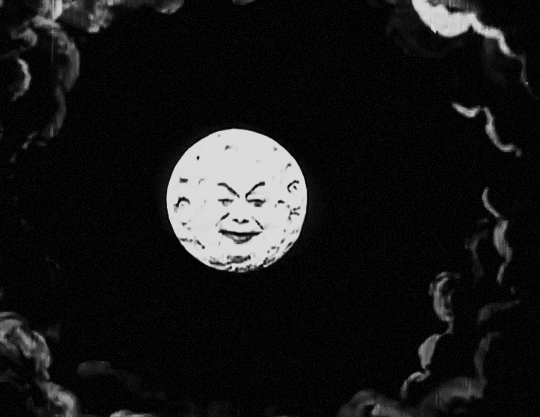
But to really hit the head on narrative film, you have to go back to France. There, illusionist Marie-Georges-Jean Méliès expanded the genre with creative sets and productions that took film into the realm of the fantastic. Inventing a number of basic tricks like dissolves and multiple exposures, Georges is the true pioneer of early film. His 1902 film, Le Voyage Dans La Lune (you know, the one where they land a ship in the Moon's eye) is considered a classic to this day, amongst other Méliès staples like Cendrillon and Le Manoir du Diable.
However, Georges isn't alone. The UK has a slew of filmakers entering the scene with their own efforts, while in the US, Edison's company is continuing their work as well. Most prominently for this story, perhaps, is the work of one of Edison's early cameramen, and therefore one of his first directors, Edwin S. Porter. Porter started with Edison in 1901, and was one of the first real film scholars. Taking from the other prominent directors of the day, he injected craft into the films he worked on for the company. At this point, one of the big things in American cinema was the brand new Western genre.
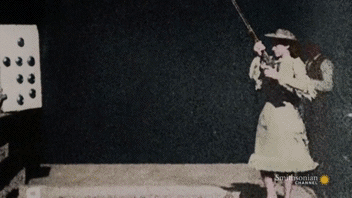
This is the point to clear up a bit of a misconception about Western films: The Great Train Robbery was in no way the first one. OK, so, the Western has its origins in Wild West shows, like Buffalo Bill's Wild West, which would travel around the world to show off the adventure and action of the American West. In fact, that GIF up above is Annie Oakley, who was filmed by Edison's Kinetoscope as an early film doing her sharpshooting act, which was a part of the show! Anyway, these exhibitions also traveled to the UK, where they made a massive impact. America was the land of the Wild West, and it arguably wouldn't shake that image until around World War II.
Because of this, the first Western films were actually filmed in England, not the United States! The first was Kidnapping by Indians in 1899, followed by A Daring Daylight Burglary in 1903. That film in particular inspired Potter, alongside an 1896 play called The Great Train Robbery, to make...well, you read the title of the review. That film is sometimes called the first Western film by mistake, but is usually forgotten in favor of Porter's film. In any case, though, the Western genre was born in the silent film era.
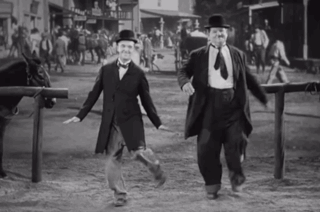
From that point, of course, history is made. Stars like Tom Mix, John Wayne, and Jay Silverheels make their way into the public zeitgeist. Characters like Bronco Billy, or the Lone Ranger and Tonto become household names. Classic films like Stagecoach and more bring the genre to new heights, while even comedians like Laurel and Hardy (above) get into the game with Way Out West. Even actual Western figures like Wyatt Earp became a part of the industry briefly, consulting on how things were in those wild days. It was a new dawn for film, and a unique era.
Of course, I've talked about Westerns before. Didn't get to cover much that month, but I covered a few films like Stagecoach. I even got some facts wrong in that recap about the first Western! Go figure. Anyway, that's a brief history of the Western film genre up to this point. But why cover this now? Well, this is also, for all intents and purposes, one of the first action films in cinema history. Ironically, the idea of action on screen would kick off an entirely different genre. Rather than spinning off into the Western, which became its own thing, the first iteration of the action genre was the adventure film, and guns were supplanted by another weapon.
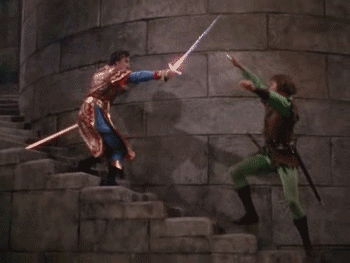
...I really wanna talk about this film on this blog, because I adore it so much. Anyway, the swashbuckler was the next real action film genre to emerge, but that's a question for the next review, I think. In the meantime, let's get to The Great Train Robbery! This post is a little bit of a return to form for me, writing a recap and review with my 5 categories of criticism. This format might not be maintained with every film I talk about this year (however many that'll be), but I'll play it by ear depending on the film! And, so, without further ado...
SPOILERS AHEAD!!!
Recap
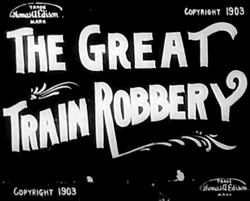
This recap is gonna be kinda weird, since as far as I can tell...there are no dialogue cards in this movie. A lot of what I'm writing here is a combination of inference and observation, as well as coordinating it with other synopses online after I'm done writing. So, yeah, this is an interesting one. Completely silent, as well.
A pair of bandits enter the room of a telegraph office, holding the clerk at gunpoint, and ordering him to write a missive of some kind before tying him up. The entire team of four bandits wait outside of the water tower used to refuel this old steam train, then sneak aboard. They immediately enter a firefight with a mail clerk on the train (who's apparently packing, damn), and kill him, then use a stick of dynamite to open a box that I assume contains valuables.
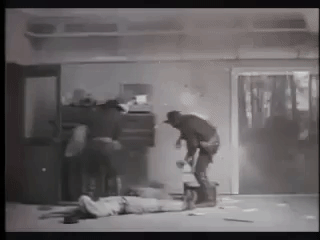
Two of the bandits climb to the top of the train, where one has a fist-fight with the fireman and...throws him off the train, damn! It's a dramatic throw, too. Anyway, once this happens, the train stops, and the bandits hold the passengers hostage aboard the train as the engine car is disconnected. The passengers are held up for their belongings, and...Jesus, guys, there are a LOT more of you than there are of the gunmen! Somebody just jump one of 'em!
Well, as if to answer my question, one of the passengers tries to run away, and gets shot in the back for his trouble. So, yeah, OK, I see the risk, but...I dunno, they only have so many bullets, I think you guys could take 'em. Anyway, the bandits escape, and the passengers immediately tend to the one who was shot. The bandits board the engine car and take off with their loot.
The party escapes into the woods a-ways down the train tracks, and meets up with their waiting horses. Meanwhile, the operator back at the station manages to get up and send out a message. His young daughter walks in and VERY smartly cuts her dad loose, making her the official hero of the film. She wakes him up, and we cut back to a dance party attended by some local lawmen. We get that Western trope where the lawmen shoot at a guy's feet to get him to dance, leading me to wonder if this is where that trope comes from?
The operator bursts in and tells the group of the trouble. They ride out to confront the bandits on horseback, but one of them gets shot in the process. Eventually, this leads to an all-out brawl in the woods, where the bandits are cut down as they count their loot. Good guys win, and the entire film ends with this classic shot of one of the bandits.
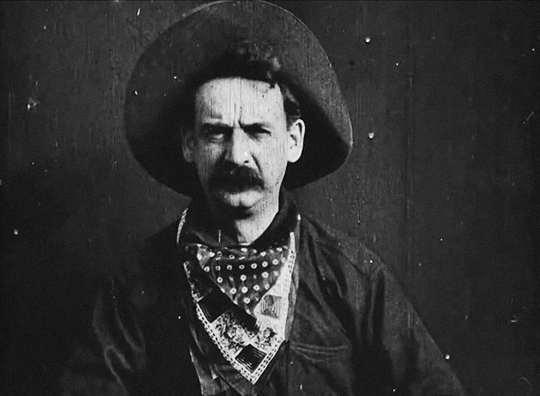
Review
So! Can I even review this one the way I would normally? I mean, probably; short films and silent films are still both films, after all, so it's not like it doesn't qualify. But there are some things obviously missing, or that need to be taken into context here. So, to go through it via bullet point method:
Cast and Acting - 7/10: Well, the actors are mostly forgotten, sorry to say; and while we know their names, none of them were actually credited in the film. The main character is arguably the bandit leader, as played by Justus Barnes, and possibly Gilbert Anderson as a few characters (including the dancer in the dance hall and the shot passenger), and Robert Milasch as the tied-up clerk (I think). Plus, it has arguably the first child actor in the form of Marie Snow, but that may need to be fact-checked. Still, they were all fine, especially for the time. Acting for no audience was sort of a new thing, after all. Hard to judge, this one.
Plot and Writing - 8/10: Hey, there is a plot, even if there's not really writing beyond a screenplay. Our writers here are director Edwin S. Porter and Scott Marble, who wrote the play this was based on. And for what it's worth, it's a simple plot. Men rob train, men get stopped. That's it. Not exactly Primer, this one.
Directing and Cinematography - 8/10: For what it's worth, I think Edwin S. Porter did a decent job in this outing. Again, this is a new doctrine entirely, so it's not like we're gonna find much creativity in either category here. Hell, according to some angles, Porter technically invented the concept of direction, but that's a very nuanced take on his role. At this point, directing just meant pointing the camera. Cinematographer (and yes, there was one) J. Blair Smith also did fine, as far as I'm concerned. Plus, hey...that last shot is iconic.
Production and Set Design - 9/10: Honestly, felt like I was watching a train robbery. So, it may feel a little Party City in terms of the bandit and lawmen costumes, but it also was authentic, so...yeah, high marks for this one.
Editing - 9/10: Normally, of course, I'd put music in this category, but...well, there's no music. So, it falls to editor...uh...oh. Shit. Wait, there's no actual editor for this one? I guess the closest I can get is Edwin S. Porter, who really carried this film. And there is editing, there has to be. After all, it managed to tell a story with literally no dialogue. No cards, no mouthed word, no music, nothin'. And yeah, I really wish that first or last one was in here at least, but the film still works without it.
So, yeah, in the end, that's an 84% for me! Which is probably causing some elderly film critic's tenderly cared-for stress-rage aneurysm to finally pop, but hey - it's how I feel. Great piece of history, completely free, and required cinephile viewing! Just go to Wikipedia or the Library of Congress.
OK, with that short-fill warm-up finally done, let's proceed through action film history! Good to be back!
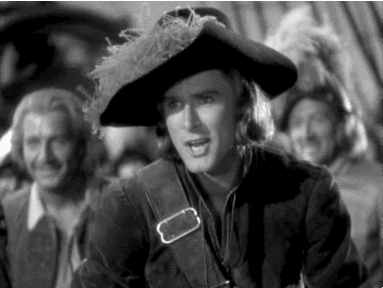
Next: Captain Blood (1935); dir. Michael Curtiz
#user365#365 days 365 movies#365 movies 365 days#365 movie challenge#action january#action#action movie#western#western film#action film#action genre#edwin s porter#edwin s. porter#the great train robbery#the great train robbery 1903#365days365movies#silent film
5 notes
·
View notes
Text
I liked the part with the hoedown.
Some surprisingly well done shootouts, though the dying poses were far too melodramatic. I was impressed they actually shot so much of this on location, including on top of a moving train. The camerawork and editing were understandably basic, but it was easy enough to follow what was happening and why; A mildly impressive feat without sound or intertitles.
In the scene where they used dynamite to blow the chest open, it looked like they set off a real explosion alarmingly close to that one guy's leg. That little bit at the end with the guy shooting at the screen must have been mindblowing stuff in 1903.
Short, sweet, and obviously influential. Very good.
#the great train robbery#the great train robbery 1903#movie review#people were seriously reviewing this like 2 stars#and saying it was boring#how the fuck do you get bored by a 12 minute long movie that has like 4 action scenes and no dialogue
0 notes
Text
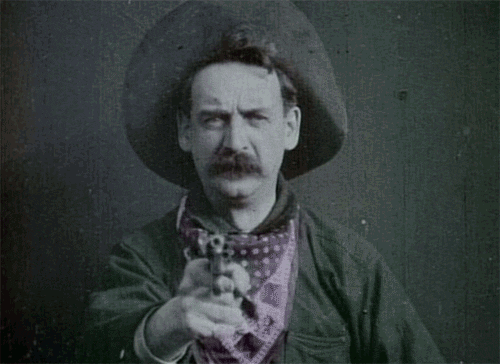
Movies I watched this week (#173):
3 by young Chinese prodigy Gu Xiaogang:
🍿 Even though Dwelling in the Fuchun Mountains is his first (and only) feature so far, it feels so mature, as if an old master put it out after a long and successful career.
It's an slow epic saga (2.5 long hours) of a large family struggling during four seasons through life's ups and down in this provincial city. It's a metaphor for a classic scroll painting from the 14 century, and apparently only the first chapter in an upcoming trilogy. A tremendous, slow-moving achievement told in magnificent style, and half a dozen transcendental set pieces. 10/10 - Best experience of the week!
I was steeped in that Chinese mentality and culture, that of practicality, resourcefulness, tradition and hope, for nearly a decade, and I miss it. 💯 score on Rotten Tomatoes.
🍿 The Sail of Cinema (2020), a beautiful mood piece which can be used as a perfect introduction to his work. Bonus points for use of 'Moonlight Sonata'. 10/10.
🍿 As Spring Comes Along (2024), a short art poem about a couple who hasn't seen each other for a long time.
🍿
Menashe (2017) is one of the few films in Yiddish that I've seen (Not too many of them, eh?). A24 indie production from 2017 about a Hasidic widower, struggling to keep his 10-year-old son with him, within the restrictive ultra-orthodox Jewish community in Brooklyn.
I dislike all religions equally (Well, some more than others...) but this is an uncritically and authentic beautiful piece of film making. Especially since the 'hero' is an unlikely ordinary man and he's not going to change. 8/10.
🍿
The Red Sea Makes Me Wanna Cry, my first film from Jordan. An enigmatic, nearly wordless story of a young woman who travels to the desolate outskirts of Aqaba in search of Ismail who had disappeared without explanation. 6/10.
🍿
10 more selections from the US National Film Registry, all seen for the first time:
🍿 Newark Athlete is the earliest film in the collection; a 12 second silent short from 1891, produced at The Edison Studio.
[ Also, The "Phonautograms" recordings by Edouard-Leon Stott de Martinville, the earliest known sound recording from 1853!]
🍿 The Corbett-Fitzsimmons Fight, a 1897 documentary of a championship prizefight boxing match, which took place in Nevada. At over 100 minutes, it was the world's first (and longest) feature film. But only 19 minutes survived today.
🍿 The classic The Great Train Robbery (1903), my first film by Edwin S. Porter, director of over 250 silent films. A "sensationalized Headliner", which included a separate close-up shot of the outlaw leader shooting directly at the camera. My r/todayilearned post: After retiring from the movies, the actor who played the lead robber, (Photo Above) became a milkman. 9/10.
🍿 First viewing of Gone with the wind was not what I expected! I knew it was a bloated confederacy 'Lost Cause' fanfiction and a revisionist myth-making, glorifying slavery and the fantasy of the antebellum South. But I also thought it was the 'greatest love story of all time', and that was harder to get. Scarlett O'Hara grew to become a strong woman with fierce survival skills, but she was so flawed; Vain, selfish, conniving and unscrupulous. Her lover and third husband, Clark Gable, was no hero either. Their tragic on-again off-again love story was a 4 hour long soap opera. The gorgeous cinematography and massive production were breath-taking though. 4/10.
🍿 All the King's Men, a fictionalized and badly-dramatized story about the corruption of power. A veiled story about populist Louisiana governor Huey Long, how he rose from humble ideological beginnings to become a power-hungry despot. 4/10.
My first film by Robert Rossen, who was blacklisted for being a communist sympathizer, but who later "named" 57 of his friends to Joseph McCarthy's HUAC. I need to watch 'The Hustler'!
🍿 "There are plenty of warm rolls in the bakery; stop pressing your nose against the window!"
Pillow Talk, a frothy romantic comedy with Rock Hudson and Doris Day. A charming story about two neighbors who have to share a party-line, a phone technology that is now all but forgotten. Like Ted Gioia, I love Doris Day's jazz singing, so in spite of the out-dated genre politics, I found this light-hearted movie lovely and enjoyable.
🍿 Saul Bass was world-famous for his astounding graphic designs and inventive title sequences. But he also directed a few films, one of which, Why Man Creates, won the 1968 Oscar for Short Documentary. It's a whimsical plaything, with Bass's geometrical genius and good-nature foolery on display. Strong whiff of Terry Gilliam wildness and style. George Lucas was an un-credited second unit cameramen on the film.
🍿 Quasi at the Quackadero, a home-made 'Yellow submarine' inspired psychedelic short, about 2 ducks and a robot at an amusement park. Made by a 'Sesame Street' animator, it's like Max Fleischer on acid. M'eh. [*Female Director*].
🍿 Before Stonewell, an informative 1994 documentary about how gay people existed before the Stonewall riots. Fascinating, even if you knew much of it. Oppression, hatred, uprising. [*Female Director*].
🍿 Scratch and Crow was a symbolic, non-narrative word-less art-short by an indie artist, Helen Hill, who was murdered at 36 in New Orleans. [*Female Director*].
🍿
4 Documentaries:
🍿 City of Gold, my first atmospheric documentary by Canadian Colin Low. A pleasant nostalgic trip back to the small Yukon town of Dawson City, which for one summer in 1895 was the center of the Klondike Gold Rush. Its slow panning style, overlapped with soothing narration, inspired Ken Burns to develop his famous 'Ken Burns Effect'. Winner of the 1957 Cannes Festival, and nominated for an Oscar. 9/10.
🍿 A day in Tokyo was created in 1968 by the Japan National Tourism Organization to promote tourism in the rebuilt city. It captured the time, 23 years after it's destruction, when it was ready to take its place as the primer metropolis of the world. It tells of its history from the Edo period until then, (but it doesn't mention the war).
🍿 "He articulated what the rest of us wanted to say, but couldn't say..."
When Martin Scorsese kicks the bucket, sometime in the near future, his obituaries will lead with 'Taxi Driver' and 'Raging Bull'. But besides his 27 features, his World Cinema Project, acting in commercials, producing, etc, he also directed 17 documentaries, including 5 excellent music docs, all about "our" sounds and times, and "our" heroes.
No direction home: Bob Dylan (2005) is centered on a lengthy interview Scorsese did with the 'bard' about his early years, leading up to his 1966 bike accident. Re-Watch ♻️. Here's my 2003 "Grow-a-brain" Bob Dylan link-blog.
🍿 Related: Joan Baez: I am a noise is her recent biography, embarking on her career-ending tour at 79, while reflecting back to a full life of peaks and traumas. I loved her music deeply all my life (her, as well as her beautiful sister Mimi!), and she always meant so much to me.
And of course, I will always remember the time on June 11, 1984, when I met her walking down the street, and she kissed me on the mouth... [*Female Director*].
🍿
"Would you like to come in for a cup of tea - or perhaps something stronger?..."
Return to Glennascaul (1951) is a spooky Irish ghost story, framed and narrated by Orson Welles, as he picks up a stranded motorist on a dark and (not) stormy night on his way to Dublin...
🍿
Re-watch: Laurel and Hardy classic The Music Box, (1932). These two numbskulls never learn. 9/10. ♻️
🍿
2 by Argentinian Mario Soffici:
🍿 Italian-born Soffici directed some of the highest rated Argentinian films of the classic era.
His Rosaura at 10 O'Clock (1958) is a strange crime drama with a story that changes so much, that it's hard to know what is true and what fiction. It takes place at a boarding house, where a shy painter starts getting perfumed love letters, and the nosy owner who meddles in his affairs. It turn out to be nearly like 'Rashomon', where everybody has their own story. There's one violent scene where a pimp beats up a woman brutally and unexpectedly.
🍿 For many decades, Prisoners of the Land (1939) was considered as the "Greatest Argentinian movie". It's a tragic revenge story about peasants fighting a cruel plantation owner in the jungles of 1915, a drunk doctor and his beautiful daughter. Very John Huston and South American Herzog-like in sweaty, feudal nightmares of whip lashing and booze.
🍿
Another film from Argentina, Viruta, is a high-production home movie made by a woman named Otilia Shifres. Her grandparents emigrated to Buenos Aires from Grodno, a small town in Poland, at the turn of the 20th century. In the film she searches for and constructs a family tree of the relatives that were left behind, going all the way to 1770. It's impressively slick for an amateur feature-length project.
The only reason I came across this personal documentary is because my own father, Eli, (who died in 2016 in Israel at the age of 90) is one of the relatives whom she discovers, and my two sisters even make an appearance in the film (at 56:00) telling her about our side of the family! [*Female Director*].
🍿
"Why don't you study a blank piece of paper for a while, and improve your mind?..."
Ready, willing and able (1937), a second-rate Broadway-style song-and dance musical, trying to emulate the finesse of better talents (like Fred Astaire and Ginger Rogers). But this un-charismatic movie is the one which introduced the Johnny Mercer song 'Too Marvelous for Words', and it ended with The fantastic Typewriter Dance, an over-the-top Busby Berkeley style number.
🍿
Alan Partridge: Alpha Papa (2013), my first film with the cringey wanker character of Alan Partridge. It opens with the Philip Glass Koyaanisqatsi theme, which was nice, but the pompous, misogynistic radio host asshole didn't resonate with me. 3/10.
🍿
Throw-back to the Adora Art project:
Adora as Bob Dylan and with Suze Rotolo.
Adora with my sister, Dafna.
🍿
(My complete movie list is here)
4 notes
·
View notes
Text

#words#wikipedia#movies#The Great Train Robbery#early 20th century#1900s#1903#1904#Edwin S. Porter#Siegmund Lubin#film history#remake#movie remakes
0 notes
Text
youtube
(https://www.youtube.com/watch?v=y3jrB5ANUUYZ)
0 notes
Text

The Great Train Robbery
Edwin S. Porter
USA, 1903
0 notes
Photo
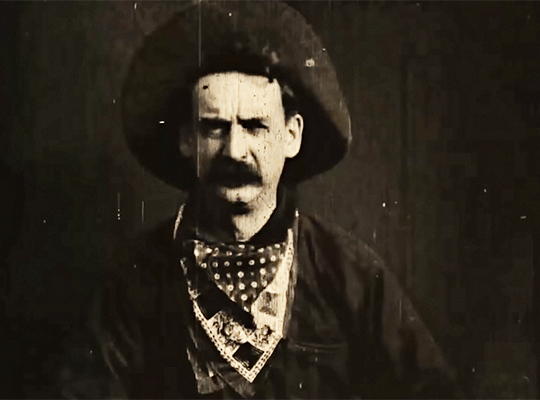
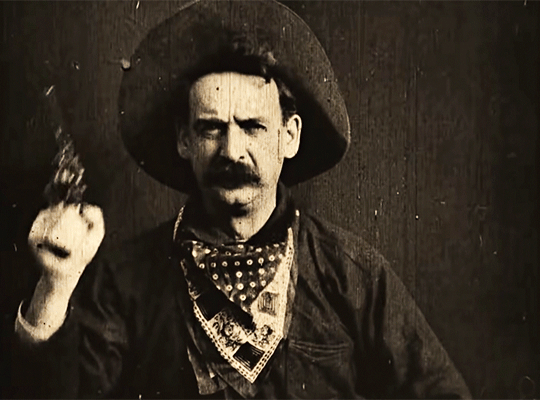

The Great Train Robbery (1903) Directed by Edwin S. Porter
#The Great Train robbery#'tw: guns'#classicfilmblr#classicfilmsource#classicfilmedit#userrobin#filmgifs#moviegifs#userrin#filmedit#fyeahmovies#dailyfilmtvgifs#classichollywoodedit#*#**
654 notes
·
View notes
Text
Dead or Alive Chapter 7

Chapter 7: The Great Train Robbery
A/N: Chapter 8 might be the last official chapter followed by the epilogue. Also I have seen the original The Great Train Robbery from 1903. It is like 12 minutes long.
Pairing: Jake Seresin/Reader
Warning: Western themed violence.
Word Count: 2400 ish
Summary: There is a train robbery.
Previous Masterlist Next
With the circuitous route Jake took, it takes 5 days to get back to the Hard Deck. When you arrive the money is divided up and including the money Natasha was able to take off the driver you end up with a little more than $16. Jake declines when you go to give him your share in repayment for the hat you lost him, saying to wait until you could repay the total amount.
“Come with me,” Jake beckoned with his head toward the room across from yours. Hesitating at the door you follow him into his bedroom, looking around in interest. It was surprisingly tidy, everything in its place. You walk over to a little table and stare at the maps pinned to the wall. He has taken childrens colouring crayons and marked off different states. The states coloured in red match the states where you remember particularly high bounty posters with his name on them.
“Here,” Jake says, standing up from the chest at the foot of his bed. He holds out a revolver to you, handle first. If any gun can be described as beautiful, this one can. It is a Colt Single Action Army Sheriff Model with an ivory grip and delicate scrollwork engraved on the barrel. “We'll get you a holster and a gun belt with your share of the money from the stage.”
“I can’t afford this, Jake.” You look up at him, willing him to understand without you having to say it. Until the Train Job was successful you were still basically broke. Your participation in the robbery of the stage was enough to ensure you had a place to sleep and food to eat, but your livelihood was still precariously close to the edge.
“Then consider it a loan.” Jake rolls his eyes and lets out a huff. “I figured you need a gun for the Train Job. Why buy one when this is just sitting useless in my bedroom?”
“Did you buy this one?” The words slip out of your mouth before you can stop them. Deep down you are not sure if you want to know where he got the gun. Your gaze flickers up to his and you try to keep the uncertainty you feel off your face.
Jake gives you a little half gin. “I won it in a card game.” You are disappointed by the relief that sweeps through you. It shouldn’t matter if he killed the previous owner, but it does. You look back at the gun cradled in your hands. “It wasn’t really my style so I figured I’d pawn it, but I never got around to it.”
You nod and absentmindedly run your thumb over the rose carved in the grip, before checking the empty cylinder and sighting down the barrel at the map on the wall. Lowering the gun you turn to Jake. “It’s beautiful.” You tell him honestly. “Thank you.”
“It suits you,” his voice is gruffer than usual and there is a dusting of pink high on his cheeks. A grin flickers over your lips and heat floods your face. Lots of men have said things like that to you. It always came across threatening and made you feel small. Jake's words felt different. They felt innocent and sincere. They actually made you feel beautiful.
“Well,” he says, clearing his throat, “let's go get you that holster.” You smile at the back of his head as you follow him out of the room. Despite all of his complaining and criminal background, Jake is one of the good ones.
– – –
Everything was in place. Bob, Natasha and Mickey had been hanging out at the train station in Silver Creek for weeks, waiting for Roberts to head to Denver to collect the money for the spur line. When he left on the 9:00 AM train to Denver, Bob and Natasha had been on the train, posing as a married couple. Mickey had rode hard back to The Hard Deck and everything spun into motion.
The location of where they were going to stop the train had been carefully chosen by Pete. Most of them had been waiting in the trees away from the tracks. Natasha and Bob would telegraph Mickey, who was back in Silver Creek, when Roberts boarded the train in Denver to return home. Mickey would then ride out and let them know which train they needed to stop. They were just waiting for Mickey to arrive.
Jake watches you as you pace around the campsite. You were wearing the outfit Natasha had given you. When the actual robbery started you would pull on Bob’s old duster but for now Jake couldn’t take his eyes off you, and you could feel them burning into your skin. The revolver he had given you sat low on your hips as you stalked over the edge of camp.
Carefully you remove the bullets from your gun and tuck them in your pocket, the metal of them cold until they absorb the heat from your body. Taking a deep breath you begin to practice drawing and holstering the weapon. It was your evening ritual. Something you had done every night since he had given you the gun. When Jake had asked about it you insisted you wanted to look like a natural on the train so nobody questioned you. It also gave you something to focus on, something to do with the nervous energy coursing through your veins since the train robbery was set into motion.
Jake had taken to coaching you. Sprawling back on the chair in your room as you repeatedly drew on your reflection. Trying to get the timing right on your draw so you could cock the hammer and draw in one motion. Occasionally he would stand behind you, positioning your body and guiding your hands through the motions.
“You're getting better.” Jake says as he walks over to you as you holster the gun. At the sound of his voice you jump and spin to face him. “You won’t be winning any duels but you look like you know what you are doing.”
“Ya think so?” You grin at him and he nods.
“Remember when we stop the train you are to go with Fanboy, and Payback. Coyote will have guns on the engineer, and Maverick, Rooster and myself will be searching the luggage cars.” You nod while taking a deep breath and reloading your gun.
“Natasha and Bob will slip away before we stop the train. They will have been watching Roberts and figured out where he is keeping the money, and immediately go to get the money when the train stops.” You recite back, your face serious.
“Yeah.” Jake nods and you give him a tense smile.
“All or nothing, right?” You flick the brim of the old hat that he has been wearing. Jake catches your hand and pulls you close. He expects you to fight him, to pull away with a coy grin, to knock his hat completely off his head, but you don’t. Your soft curves melt against him and he slides his hand around your back, palm slipping dangerously close to experiencing how those jeans cup your ass.
“You should stay with me after this.” Your eyes widen at his declaration. Part of you wants to stay. To stay in the whirlwind of crime you had found yourself in. The adrenaline of the theft and running from the law. But it isn’t what you want. You don't want to live your life in fear.
“I don’t know.” Your voice is soft and your eyes are pleading.
“The two of us together would make a pretty good team.” A sad smile hits your lips. You did make a good team and over the last few weeks you had come to enjoy the time you spent with Jake. But after this you wanted out. To start a new life somewhere else, without all the running and the robbing.
“Maybe,” you lean into him, letting his warmth seep into your bones. Your moment of peace is stolen when Fanboy comes galloping into camp.
“They’ll be on the evening train.” It’s all he has to say for the camp to turn into a kicked ant hill. Javy is hitching the team of horses that will haul the wagon that will be used to block the railroad tracks. You help Jake roll up your bedrolls and fix them to the back of the saddles of Daisy and Jet, while he takes down the tent. When everything is packed up you go to mount but Jake stops you, “No unnecessary risks, it isn’t worth it.” He murmurs, his eyes searching yours, before abruptly turning and mounting Jet, leaving you frowning at his retreating back.
Riding beside Jake in the middle of the group, the duster flaps against your legs in the wind. Everything feels surreal. Like it's straight out of a penny dreadful. One with gunfighters and cowboys, lawmen and outlaws. But for once you wouldn't be in the position of damsel. Glancing sideways at Jake you run your fingers over the extra bullets slotted into the gunbelt and hope you won’t need them.
– – –
Jake flexes his fingers on the revolver from his cover. It is nearly pitch black with clouds covering the light of the moon and the rumble of thunder in the distance. Coyote stands next to the wagon loaded down with railroad ties, a lantern held in one hand, rifle in the other. Jake knows you are about halfway between him and Coyote. Hidden somewhere in the undergrowth.
You are too far away. That itchy feeling he had the whole stagecoach job has returned. The need to go to you. To be by your side. To protect you. Jake grits his teeth and puts the thought of you out of his head. The sound of the steam engine chugging away can be heard faintly in the distance.
“Maverick ready,” The sound off starts with Mav.
“Hangman ready.”
“Rooster ready.”
They go down the line, everyone calling out from either side of the tracks. His heart gives a jump when he hears you call out “Sugar ready.” To hear you using the name he calls you as a code name leaves a twisted feeling in his gut.
The train was getting closer when the words, “Coyote ready.” carry through the air. He glances at Coyote as the train finally rounds the bend in the distance and watches as the man smashes the lantern into the kerosene soaked railroad ties in the wagon. Jake blinks at the flash of light and averts his eyes back to the train.
In seconds he can hear the whistle sounding and the brakes squealing as the engineer struggles to stop the iron horse. They wait. This was why train robberies were so dangerous. If you stopped the train everyone onboard had time to prepare and grab their guns. If you jumped on the moving train there was alway the chance of falling and getting killed in the process.
The train finally squeals to a halt and Jake springs forward. A guard with a shotgun steps out and takes aim at Jake but he is shot by Maverick before he can fire. At the first gunshot the screaming begins. Everyone onboard knows it’s a robbery now.
Jake follows Maverick through the back door of the caboose, Rooster taking up the rear. There are two more guards inside. Jake shoots the first when he points his revolver at them but the other wisely chooses to surrender, raising his arms high. Jake grabs a length of rope off a mail bag and ties the man's feet to his wrists behind his back as rain begins to drum on the roof of the car.
With that Jake moves to the door at the front of the caboose to act as guard. Revolver drawn he peeks around the corner as Rooster and Mav began the search, rifling through luggage and cracking the safes that were hidden on passenger trains for the more valuable cargo.
The sound of gunfire further up the train had his heart hammering in his chest. Was it you who fired? Were you the one shot? Sweat gathers on his brow and he resists the urge to dry his palms on his pants.
The sound of footsteps on metal reaches his ears and Jake glances up to see a guard aiming his gun down from the roof of the rail car in front of him. Jake ducks back inside just in time for the bullet to ping into the floor of the caboose.
“Hangman!” Rooster shouts from where he is cracking a safe. “What are you doing out there?”
“Oh, I’m just barking at a knot.” Jake replies sarcastically, ducking as a bullet splinters the wood over his head.
Another bullet ricochets into the caboose before Mav calls out. “Hangman, make yourself useful or we are all going to end up with lead poisoning.”
“Yeah, yeah,”Jake mutters, taking a deep breath and ducking out from behind the wall to fire on the man on the roof. Lightning splits the sky and the guard folds over and rolls off the roof, his cry of pain drowned by the thunder as Jake automatically reloads, his eyes peeled for others.
Jake leans back inside. The shooting from further up the train has stopped. Jake listens intently, but the only sounds are coming from Maverick and Rooster behind him. After a few more moments he hears them call out that they are finished and the three of them move up into the train car in front, this one is also for cargo. They quickly move through it, taking whatever is portable and valuable and moving on.
Jake sees movement up ahead and nearly fires before realizing it is Phoenix and Bob. “Do you got it?” Mav asks, but Jake can tell the answer by the shake of Phoenix’s head before Mav has finished asking the question.
“He must have it on him.” Bob explains. “They had a bag that was being guarded but it didn't have much more than $500.”
“Damn,” Maverick mutters as the five of them move up the train, robbing as they go. Eventually they come across Fanboy and Payback each loaded down with canvas bags bulging with loot from the passengers on the train.
“Where’s Sugar?” Jake asks as a gunshot sounds off to the side of the train.
#jake seresin#hangman#jake hangman seresin#jake seresin/reader#hangman/reader#jake hangman x reader#jake seresin x reader#top gun hangman#topgun maverick
102 notes
·
View notes
Text
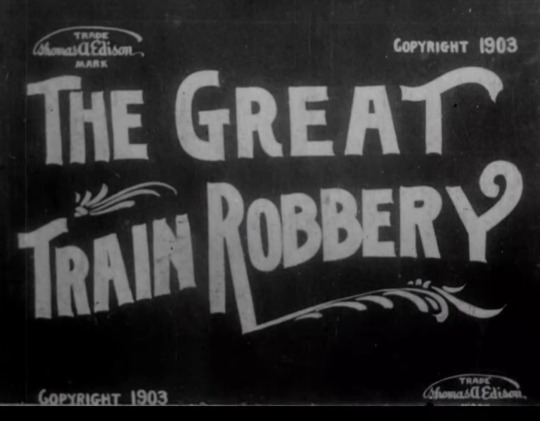
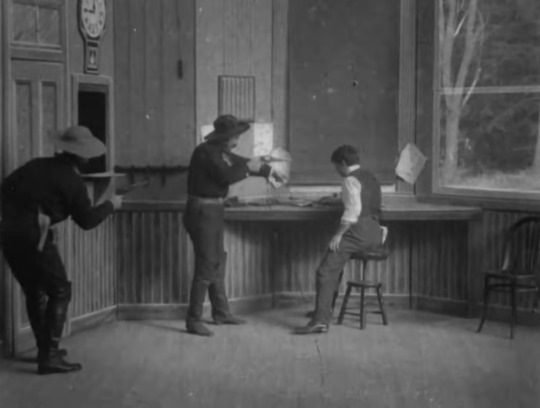
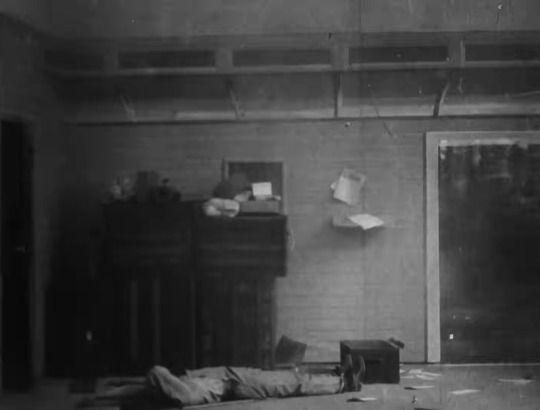
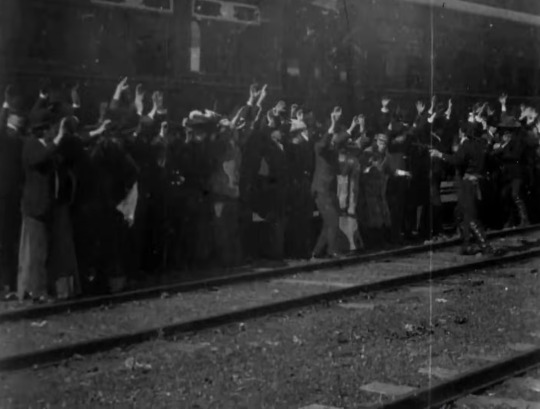
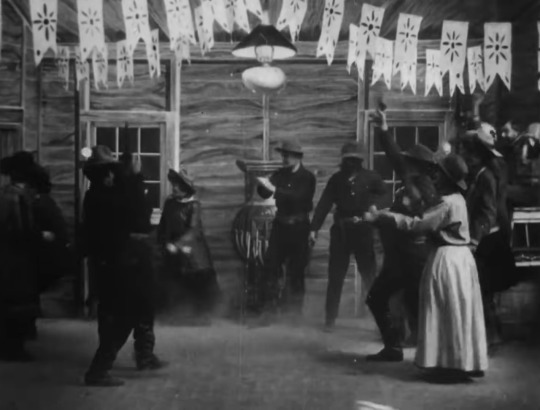
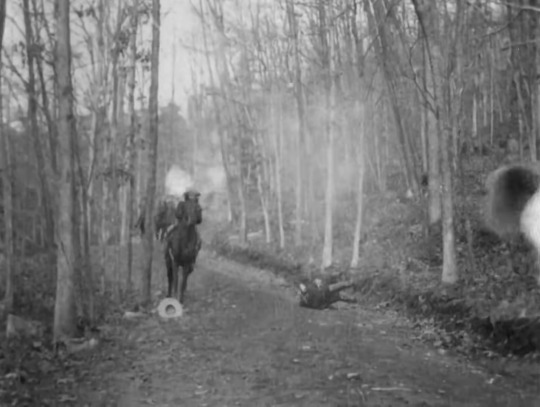

The Great Train Robbery (1903)
Director: Edwin S. Porter
Cinematographers: Edwin S. Porter and J. Blair Smith
#classicfilmsource#classicfilmblr#oldhollywoodedit#classic movies#old movies#the great train robbery#edwin s porter
21 notes
·
View notes
Text
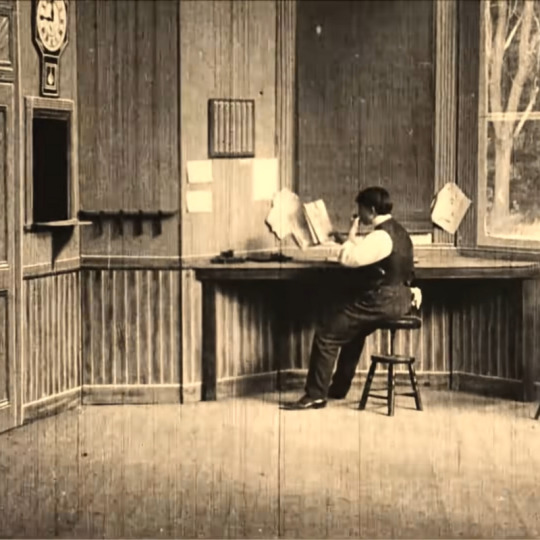


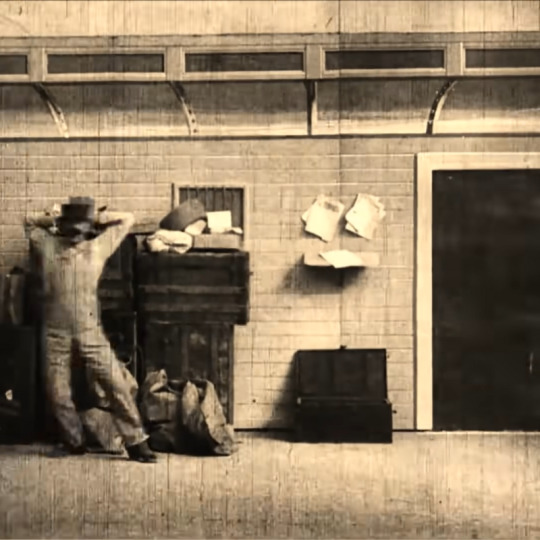




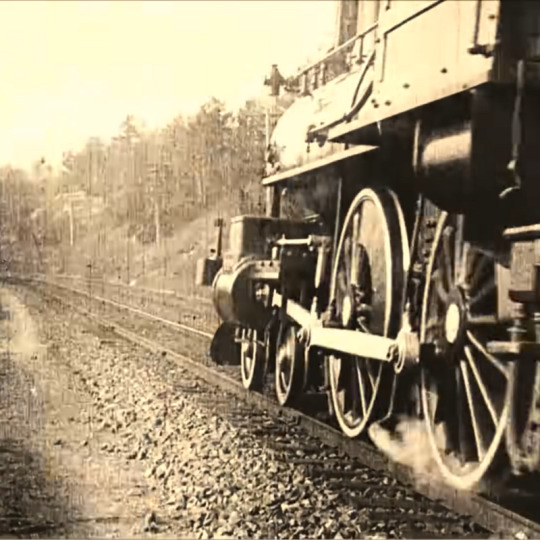
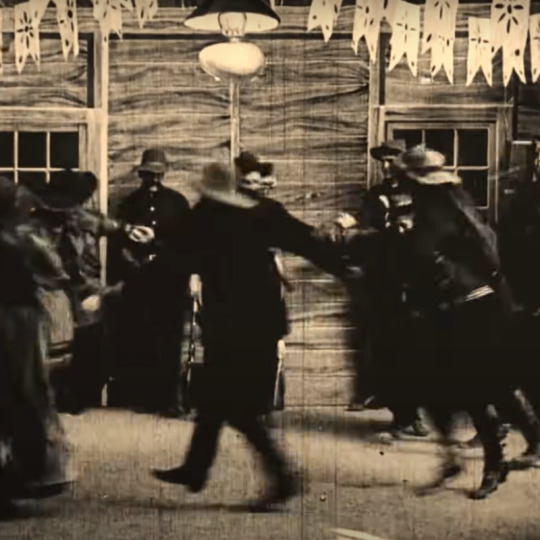
cinema firsts: the great train robbery (1903) directed by edwin s. porter
first western movie and was twelve minutes long
#cinema firsts#the great train robbery#10s cinema#1910s movies#moviesedit#filmedit#cinema#old cinema#movie screencaps#screencaps
41 notes
·
View notes
Text

THE GREAT TRAIN ROBBERY, made by Edwin S. Porter for the Edison Manufacturing Company, was first screened #OnThisDay in 1903.
32 notes
·
View notes
Text
The Era of Silent Films, ep. 01

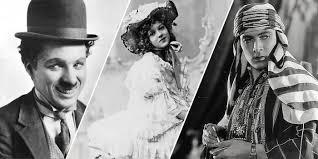
Silent films united the world as a universal language of artistic majesty. The art of acting was body language and facial expressions, but it was music played by orchestras that impacted theater goers by unleashing emotional reactions film directors desired.
The oldest surviving silent film was recorded in October 14, 1888 by Englishman Louis Le Prince called the Roundhay Garden Scene. Le Prince filmed his son, his in-laws, and a woman enjoying an afternoon in the garden at his in-laws’ home. Le Prince’s invention of capturing moving images on camera predated Edison’s invention of the Phonograph.
In 1895, two Frenchmen brothers, Louis and Auguste Lumiere, invented the Cinemetographe and a specific kind of film to capture daily activities in France. The movie was released at the Grande Cafe in Paris and they charged admission to view their series of films.
Australia produced the first feature silent film in 1906 by filmmaker director Charles Tate, The Story of the Kelly Gang. This would be the longest narrated film in its time running over an hour long.
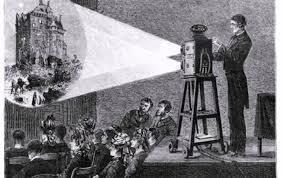
In America, viewing of silent pictures began in 1894 in Manhattan at Kinetoscope Parlors and Nickelodeon picture houses with 30-second long films made by Thomas Edison. He later produced a twelve minute long film in 1903 titled The Great Train Robbery directed by Edwin S. Porter. This film is credited for launching America’s film industry, however, masters of the industry were from overseas. Compared to America, quality of productions was superior because of elaborate details flowed flawlessly as to studios here didn’t have money to create lavish sets to tell a good story.
D.W. Griffith dared to challenge films made overseas by concentrating on directing one film. He adapted a story from Rev. Thomas Dixon’s book The Clansman. Griffith’s father was veteran of the Civil War which was the influence for his big production. Joseph Carl Breil wrote the score and on February 18, 1915, the movie premiered at Clune’s Auditorium in Los Angeles where he conducted the entire Los Angeles Philharmonic Orchestra. It’s reported that men cried in theaters and even President Woodard Wilson said it was like seeing history in a flash. Griffith later changed the title to The Birth of a Nation because of the film’s emotional impact on people.
The Birth of a Nation was controversial and it caused riots across America, but despite the problems it created, the movie launched the filmmaking industry of quality films into what it is today. I will cover this in another post.
The silent film era gave us great movies, iconic movie stars, and a universal connection around the globe. Until next time… Aloha oe.
Photos: *Next Best Picture, Collider, Getty Images, OpenALG, ToughtCo,
#movie review#movie talk#movie time#silent film#movie history#movies#movie theme#review#movie theater#hollywood#hollywood history#silent movies#historical#black and white movies#hollywood icons#19th century#cinemetography#filmmaking
4 notes
·
View notes
Note
ricky: howdy, did you know the first western was the great train robbery released back in 1903? a little while after the gordy’s home events i had the shows old stalker send me a letter telling me in detail how he would hunt me down and kill me. i had it laminated and framed, i keep it with the rest of the stuff i collected from that era. i’m fine. ojos hermosos tienes que. amber: UGH i can’t NOT fuck him
I’d say Amber really said “I can fix him” But I don’t think that exactly fits. She just got a very messed up man and said “The Love Of My Life. My Soulmate.” While he continued to do absolute batshit crazy things.
#ricky jupe park#Amber park#Amicky#That ship names growing on me#nope Anon#Pls. If anyone wants to talk about these two or wants to hear my thoughts on them#Literally They. My Brain.#Or the Park Kids <33#I wonder about Amber a lot. despite her role in the movie being p small
13 notes
·
View notes
Note
24 (the pinned post)
The Great Train Robbery (1903)
2 notes
·
View notes
Photo
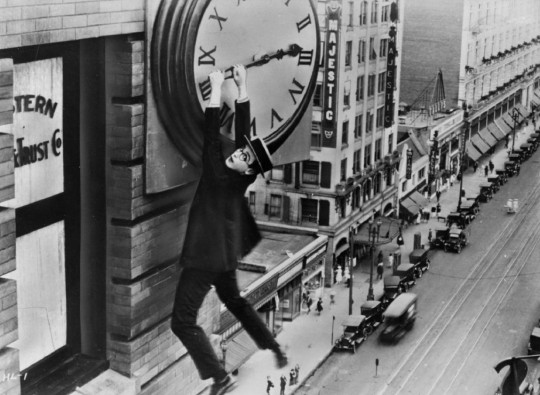
(My favourite films by decade are below the cut)
Tonight, I watched 'Safety Last!'—the slapstick silent comedy from 1923 with the indelible 20-minute clocktower scene—which means that I've now seen at least one film from every year since 1891, shortly after the invention of motion pictures (I've also seen the few recordings that came before that, such as the 12-slide ‘Horse in Motion,’ but there are gaps in the years, and we're talking about film segments that were roughly 2 seconds in length—films didn't even get to 3 minutes in length until 1898; the first hour-long movie was in 1906).
I've got 916 movies on my list (it's probably more than that; my mind has no idea if it's ever seen a sequel). I posted a while ago about only having 600 movies logged; to fill out the list I went through box office charts to identify what I'd likely seen in the 80s, 90s, 00s, etc. but had forgotten about.
I was missing so many from the 90s, when we had our family movie nights. On average, from 1989 to 2000, I saw 28 films per release year. That dropped to 15 once I finished undergrad, and has remained pretty constant. Going by the box office charts, I don't feel I've missed much of what I've wanted to see; there have been far too many sequels and metaverses, which simply don't interest me. Over these COVID years, I've been watching more than just the newest releases, catching up on earlier decades; I've seen 173 that were released before I was born (most pre-1970 releases are from COVID onward).
My favourite films by decade (because I like lists):
1890-99: The Astronomer's Dream (1898). Directed by Georges Méliès; the first film as real artistic production; multiple scenes and stages, special effects, 3 minutes.
1900-09: The Great Train Robbery (1903). The first epic action movie, at 13 minutes. Fantastic production value; it's got better cinematography and editing than a lot of current movies.
1910-19: I'm unsure. ...perhaps The Conquest of the Pole (1912), another by Georges Méliès. I need to see more films from this decade.
1920-29: Wings (1928) and Metropolis (1927), take your pick. One, the Oscars' first Best Picture winner and the benchmark for romantic drama (and with Clara Bow!), the other the most impressive film ever made.
1930-39: My Man Godfrey (1936), my favourite Carole Lombard role (she's a fuckin' hoot!).
1940-49: Citizen Kane (1941), Casablanca (1943) are both fine choices, but my choice would be His Girl Friday, because snappy dialogue is like a hit of cocaine.
1950-59: Roman Holiday (1953). Audrey Hepburn and Gregory Peck are both so charismatic; the chemistry here is palpable.
1960-69: The Great Escape (1963) is an excellent pick, as is Ingmar Bergman's Persona (1966). I'd take The Graduate (1967); it felt so unique, not your typical love story, and Anne Bancroft's vulnerable seductiveness turn felt so dangerous.
1970-79: This was such a great decade (Harold and Maude, Chinatown, Monty Python and the Holy Grail, Up in Smoke) ...but Apocalypse Now (1979) is my all-time top pick.
1980-89: The Gods Must Be Crazy (1984). Timeless. Wholesome. Simple and effective.
1990-99: I'm trying to pick one film out of the 300 that I've seen from this timeframe, so maybe one [Ed. note: or more] per year? Edward Scissorhands (1990), Point Break (1991), Wayne's World (1992), Jurassic Park/Schindler's List (1993), The Madness of King George/The Hudsucker Proxy/Quiz Show/Malcolm X (1994), Babe (1995; yes, the pig movie), The Young Poisoner's Handbook (1996), Life is Beautiful (1997; La vita è bella), ...not sure on 1998...maybe Waking Ned Devine/Pleasantville..., Office Space/Lock, Stock, and Two Smoking Barrels (1999).
2000-09: Gladiator/Girl, Interrupted/American Psycho (2000), Amélie/Ali (2001), Super Troopers/Secretary (2002), Dogville (2004), No Country for Old Men (2007), There Will Be Blood (2008), Dead Snow (2009).
2010-19: The Artist (2011), Argo (2012), Beasts of No Nation (2015), Rogue One (2016), Coco (2017), The Nightingale/Parasite/Knives Out (2019).
2020-23: One Night in Miami... (2020), Nitram (2021).
If you’ve made it this far, thanks for watching. 🎞️
6 notes
·
View notes
Note
What’s the oldest movie you’ve ever seen?
According to my Letterboxd, it is Boat Leaving The Port by the Lumiére brothers from 1895.
Coming down to ACTUAL films with...plots and structure...it would be The Great Train Robbery by Edwin S. Porter from 1903.
2 notes
·
View notes